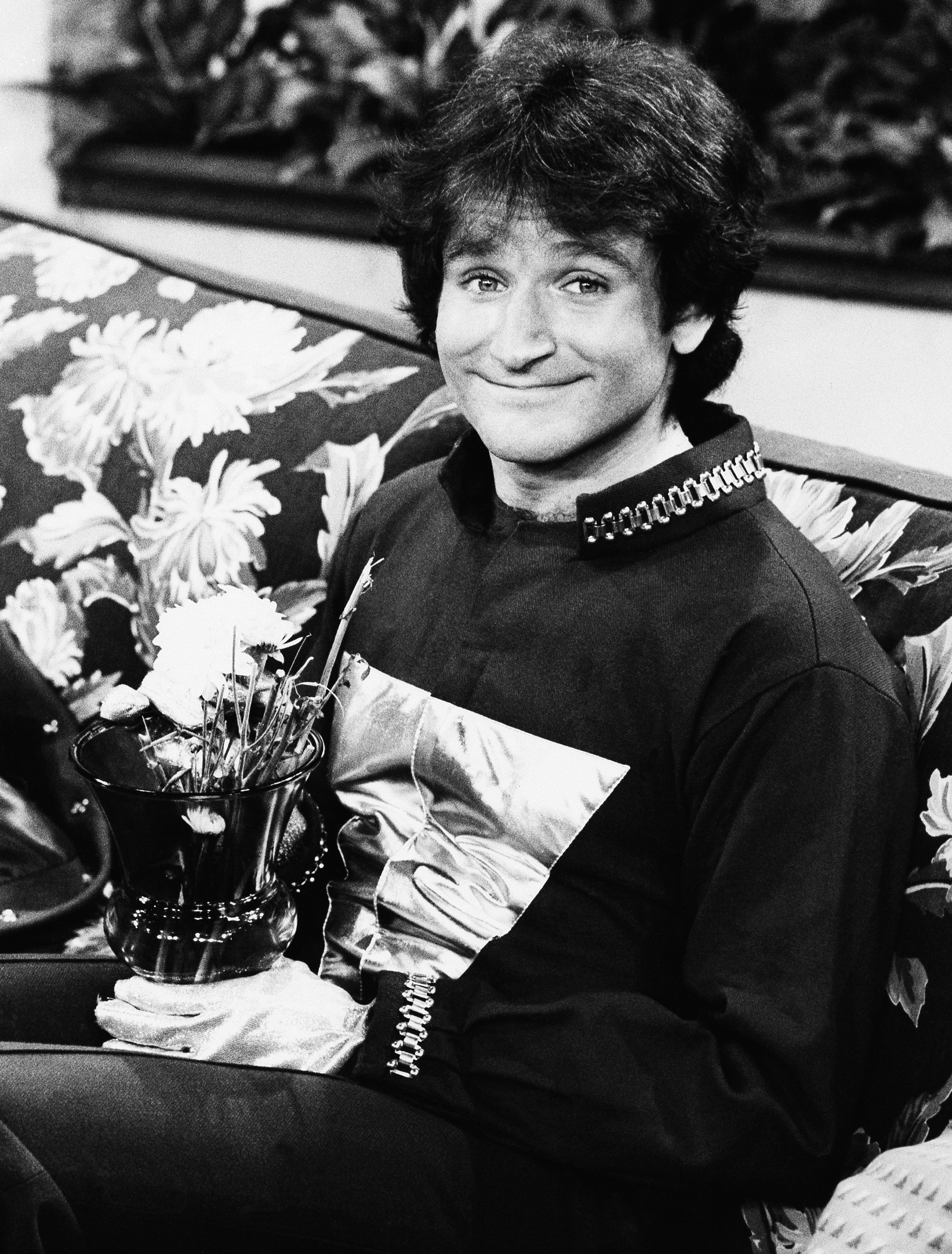
Robin Williams, of course, didn’t belong to me alone. At the peak of Mork & Mindy’s success — when he made the cover of TIME his first season — over 60 million people watched it every week. (A No. 1 show today is lucky to get a third that many viewers.) But when I was a kid, raised on a steady diet of ABC sitcoms, he was the first TV star who felt like mine — the first one who amazed me, who connected with me, who I genuinely liked, rather than simply liked to laugh at. Williams, who died Monday at age 63, had that gift, the ability to be staggeringly gifted yet connect on your level, to do things it seemed no human comic could do, and yet feel as if he were doing them for you.
Again: I was nothing special in that respect. Kids loved Mork, the crazy alien on Boulder, Colo., and loved Williams as Mork. He was a man and a kid, buoyant, rubber-faced, an endless gusher of playful invention. That superhuman ability to riff and improvise was what led Garry Marshall to first cast him in an episode of Happy Days, home of Fonzie, whose 1950s characters and catchphrases were already enshrined on our lunchboxes. (Aaaaaaayyyy!) Soon enough Marshall had the sense to give Williams his own spinoff — time-jumped to present-day 1978 — to crank him up and let him run with his improvisations.
Like any American child, I loved the Fonz. But the Fonz was a grownup, with his motorcycles and dates with triplets. Mork, who soon got his spinoff in 1978, was something else: an adult, and a kid, and a magical being. He was a grown man who looked at our world with the delighted surprise of a baby. (He was also, of course, channeling ideas from the adult comedic counterculture at the time, but all my classmates and I heard then was the funny voices.)
The Fonz was cool. Mork was weird — popping-out-of-an-egg, rainbow-suspenders, scat-riffing-about-the-Shah-of-Iran weird. And he communicated an idea that I hadn’t seen in noncartoon pop culture before then: that weirdness was O.K. No, it was great. It was energy. It opened up worlds.
This being the ’70s, Mork had his own catchphrase — Nanu nanu! — but what was captivating about Williams was that you didn’t know what would come out of his mouth. In the classic episode, “Mork’s Mixed Emotions,” he begins by describing a dream he had to Pam Dawber’s Mindy, his roommate and later his love: he becomes a one-man comedy troupe, lurching from confusion to anger to jealousy, arguing with himself in multiple voices and slapping himself in the face, finally becoming Mindy herself. In that first season, Williams was making a rich-for-the-time $15,000 an episode, but it was a bargain: his producers were getting a package deal.
One of the premises set early on in Mork & Mindy was that Mork had no emotions. He didn’t fool any of us for a second. His clipped alien-speak notwithstanding, Williams played him as all emotion: delight, confusion, warmth, amazement, glee. His emotions cascaded over him, and he struggled to wrestle and understand them — which, of course, was another thing kids identified with in him. When Mork began to fall in love with Mindy, he was the only one surprised that he had it in him. As he would eventually report back to his alien mentor Orson, “Love doesn’t make sense. That’s why Earthlings think it’s so wonderful.”
I am, I realize, sketching only a tiny corner of the career that Williams made for himself. But it was that performance as space-alien Mork — more human than any of us, Orkan though he was — that made me, and millions of others, feel like he belonged to us, even as he belonged to the universe. RIP.
More Must-Reads from TIME
- Cybersecurity Experts Are Sounding the Alarm on DOGE
- Meet the 2025 Women of the Year
- The Harsh Truth About Disability Inclusion
- Why Do More Young Adults Have Cancer?
- Colman Domingo Leads With Radical Love
- How to Get Better at Doing Things Alone
- Michelle Zauner Stares Down the Darkness
Contact us at letters@time.com